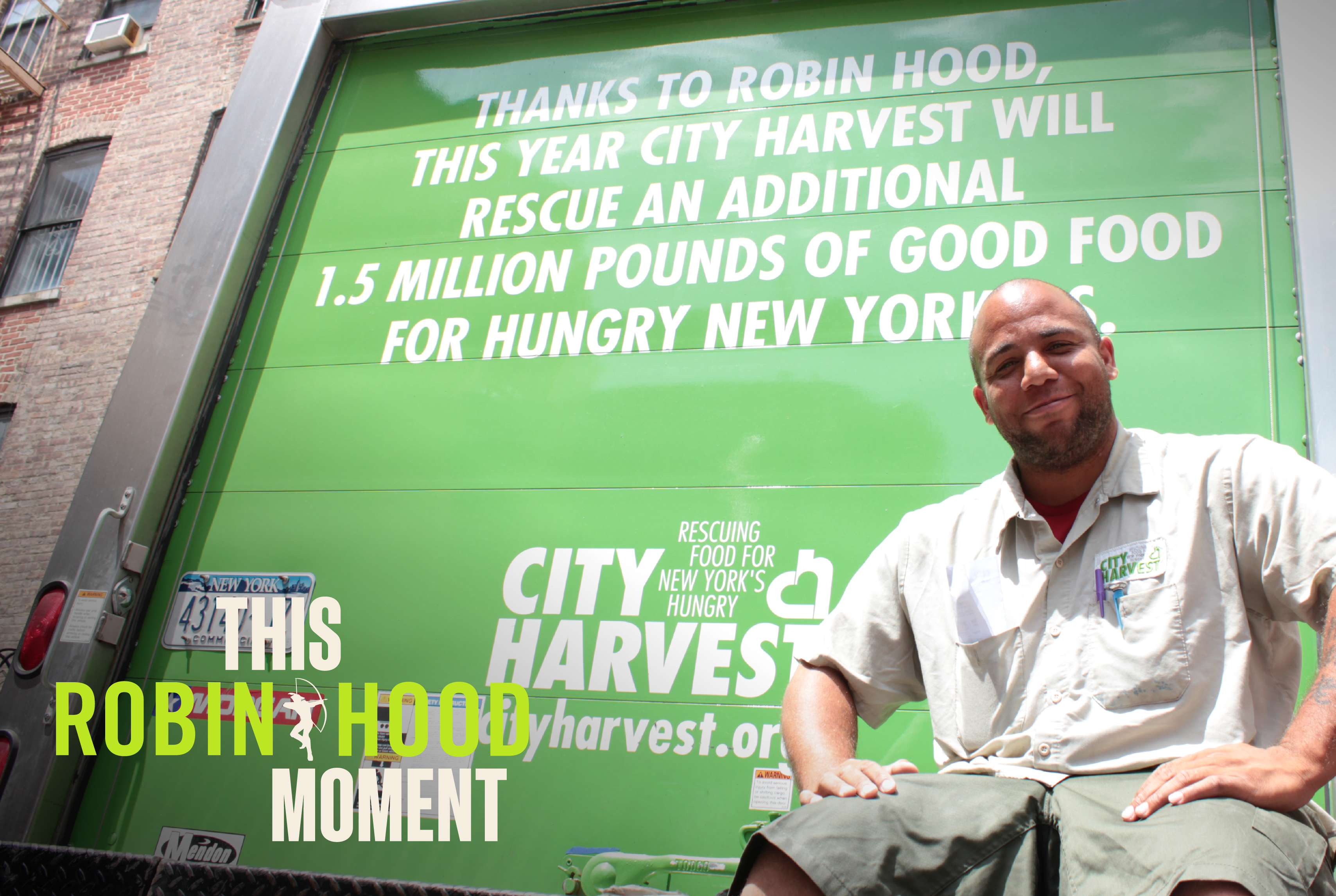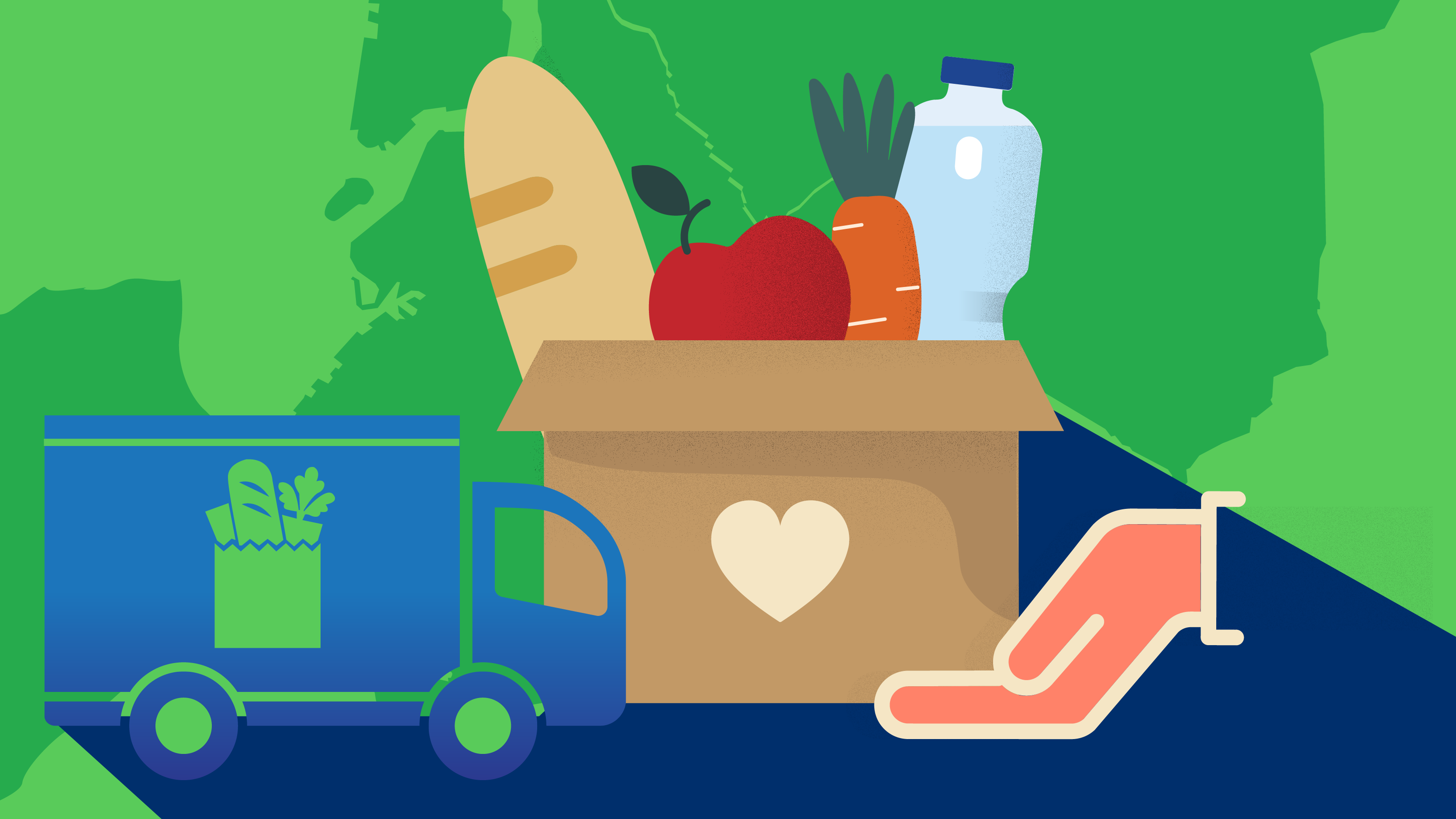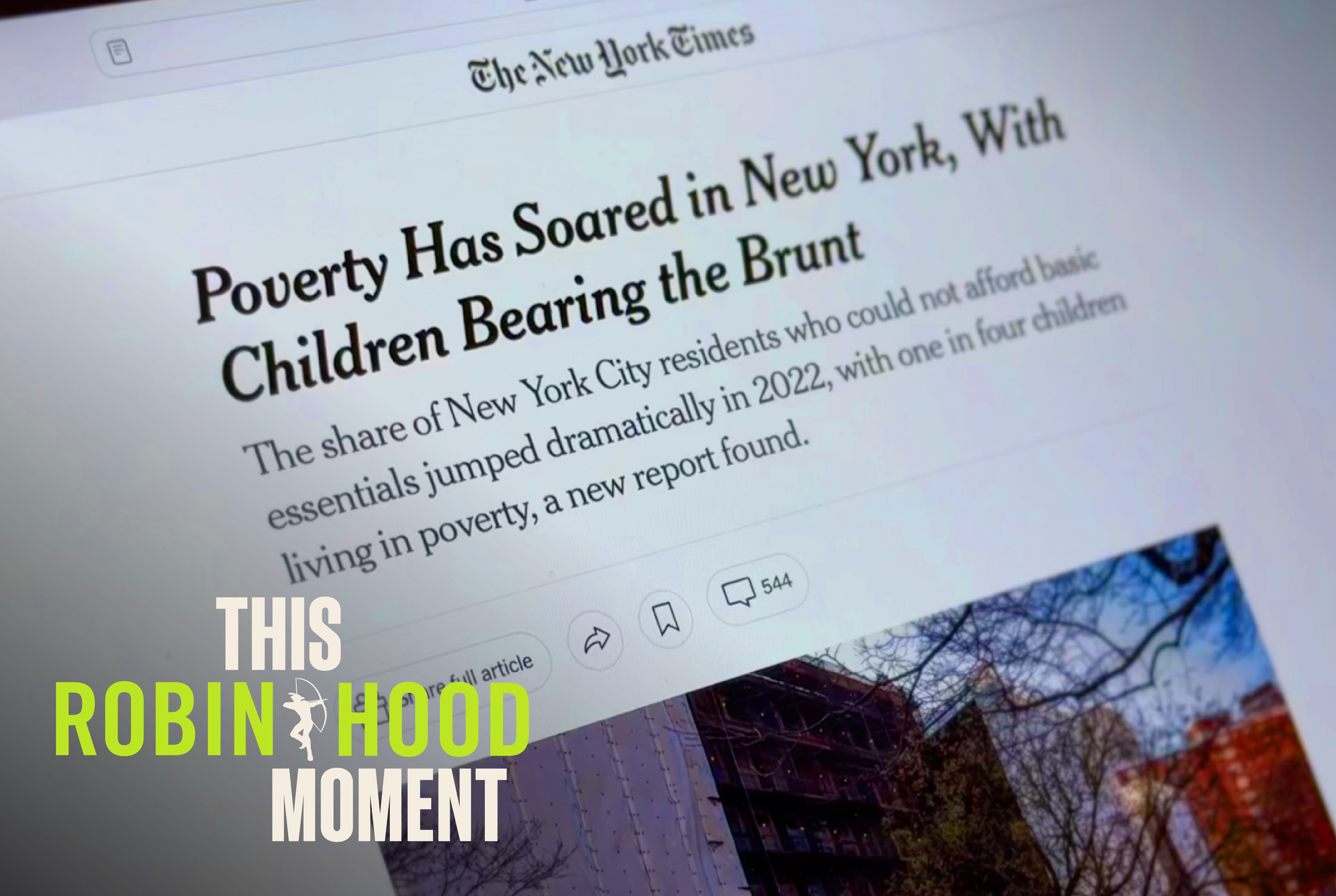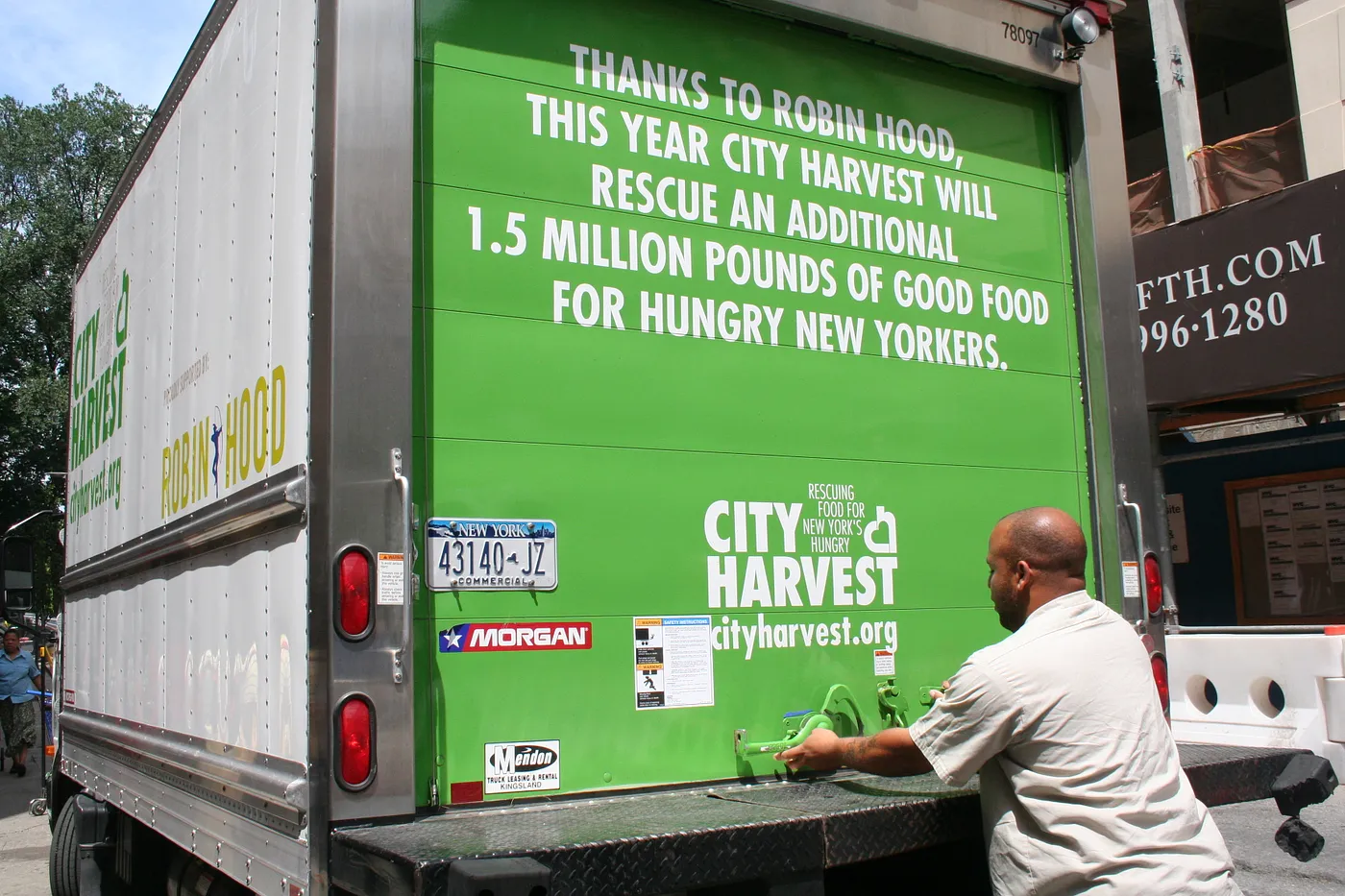Jul 07, 2021
Working with Game-Changing Leaders to Feed New Yorkers
Spotlight on The Campaign Against Hunger
By Emary Aronson, Chief Knowledge Officer & Senior Advisor to the CEO
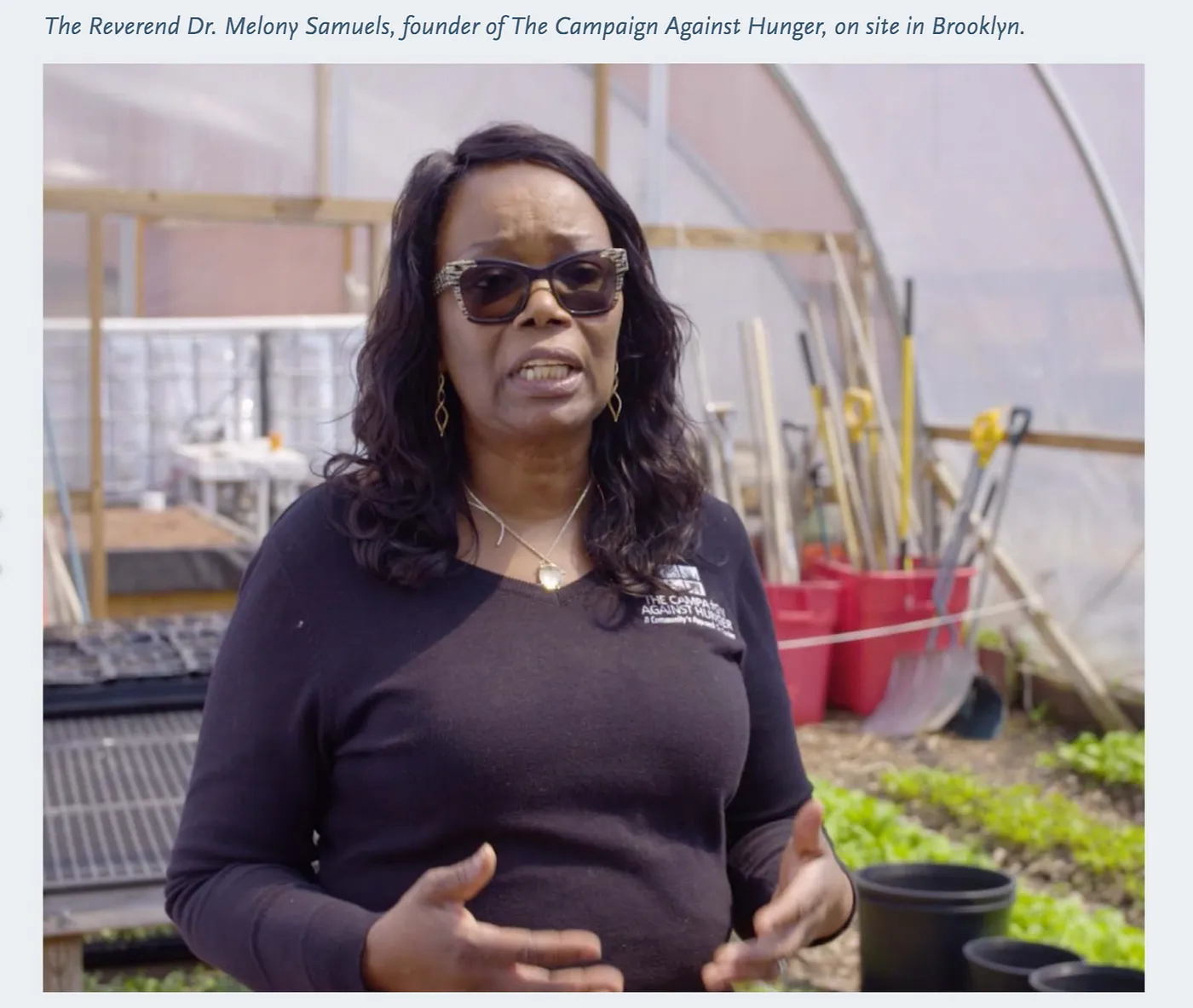
Reverend Dr. Melony Samuels, founder of The Campaign Against Hunger, on site in Brooklyn
In our more than three decades of fighting poverty in New York City — and through three large-scale relief efforts — we have learned the value of uplifting game-changing leaders who are finding unique ways to effect change in their communities.
Even before the COVID-19 pandemic, food hardship was widespread, impacting 30% of New Yorkers. And when COVID-19 devastated New York City, millions lost employment and more than 2 million New Yorkers were suddenly facing hunger. Estimates showed that more than a third of parents or caretakers skipping or reducing meals to ensure their kids did not go to bed hungry.
It was clear that our City needed innovative and far-reaching solutions to address food insecurity and we knew that those game-changing leaders — some of whom we had invested in before — were needed to address these issues at scale.
We have used this space to discuss food in the past. Specifically, in “Why Solving Food Insecurity is Key to New York City’s Recovery,” Robin Hood’s Senior Program Officer, Raj Borsellino, explained Robin Hood’s approach to emergency food response. One distinction about emergency food in the time of the pandemic vs. past crises, was that the entire restaurant industry closed at once, putting somewhere between 350,000 and 1,000,000 restaurant workers out of work, and leaving kitchens idle and farmers without demand for their products.
To address this, early on in the pandemic we supported Rethink Food and World Central Kitchen, two organizations repurposing commercial kitchen spaces to provide hot meals for those in need. This unique approach filled a particularly critical void during COVID-19 by not only serving millions of meals, but also generating hundreds of new jobs for unemployed restaurant workers impacted by pandemic shut-downs.
We also sought out newer and smaller organizations to test impact, like Invisible Hands, an app designed during the pandemic by college students to deliver groceries, medication, and other supplies and provide community to the isolated elderly and immunocompromised New Yorkers. As weeks progressed, we were in awe by the founders’ ability to quickly employ technology to connect New Yorkers in need with those who wanted to be of service. As the app grew, we added to our relief investment.
And we looked to organizations serving historically disinvested communities that been ravaged by the pandemic. This is how we came to the Reverend Dr. Melony Samuels and her remarkable organization, The Campaign Against Hunger (TCAH).
It all started in 1998 when Dr. Samuels started a food pantry at her church, the Full Gospel Tabernacle of Faith in Brooklyn. Although the pantry met the needs of approximately 50 families struggling with food security, it was not enough. She would drive to work in the morning and see long lines of seniors waiting to be served hours before the pantry even opened. It broke her heart.
So, she did what many of her family and friends thought was crazy: she quit a lucrative job in the insurance industry to dedicate herself to the food pantry full-time. Her supervisor asked her, “Why would you leave a great job to do this?” Dr. Samuels replied, “Because I’ll be happier.”
In 2005, she moved operations out of the church, received a 501(c)(3) status, and Grace International — now TCAH — was born.
Dr. Samuels implemented several innovations that grew TCAH’s customer base, including allowing clients to shop for the food that met their families’ needs. She developed a workforce program, hiring at-risk and formerly incarcerated youth to handle pantry operations. She also noticed that the local community — predominantly Black New Yorkers — were not getting the nutrition they needed, putting them at greater risk of diabetes, heart disease and obesity. To bring more fresh foods to her community affordably, she decided to grow the food herself, and successfully pioneered a farm-to-pantry model. What started as a garden in the church’s backyard became four acres across the city, with three more gardens in the works.
By 2020, TCAH was providing 3 million meals per year while helping clients learn more about healthy eating habits, providing tax prep services, and access to benefits like SNAP (Supplemental Nutrition Assistance Program), the current name for food stamps. Then COVID-19 hit.
With its foothold in many parts of the city, TCAH was uniquely positioned to respond to the crisis. The agency altered its operations to accommodate the surge in need while keeping clients safely distanced by incorporating curbside distributions. Despite these changes, demand often reached as many as 1,000 families per day — and Dr. Samuels and Robin Hood recognized we should be partnering.
First, Robin Hood provided short-term Relief Fund support to address the immediate needs of the Ocean Hill/Brownsville Brooklyn community. Building on this work, with a one-year grant as seed funding from Robin Hood, the agency recently launched a new food distribution center on the Far Rockaway peninsula in Queens. All told, TCAH now has a staff of 50 and leverages over 4,000 volunteers to serve New Yorkers in 150 zip codes across the city. TCAH’s daily food distribution has increased more than tenfold since March 2020, serving 20 million meals to families this past year.
As we seek to get families back on their feet, we are looking for ways to rebuild our City’s emergency food infrastructure. Dr. Samuels is a testament to a key lesson we have learned through years of relief and our poverty-fighting work: the solutions come from game-changing leaders who understand their communities and Robin Hood’s role is to provide the funds to fuel their work.
We remain humbled by those who step forward in the face of a crisis to help others, and continually seek to scale their efforts as we aim to rebuild a new New York.
